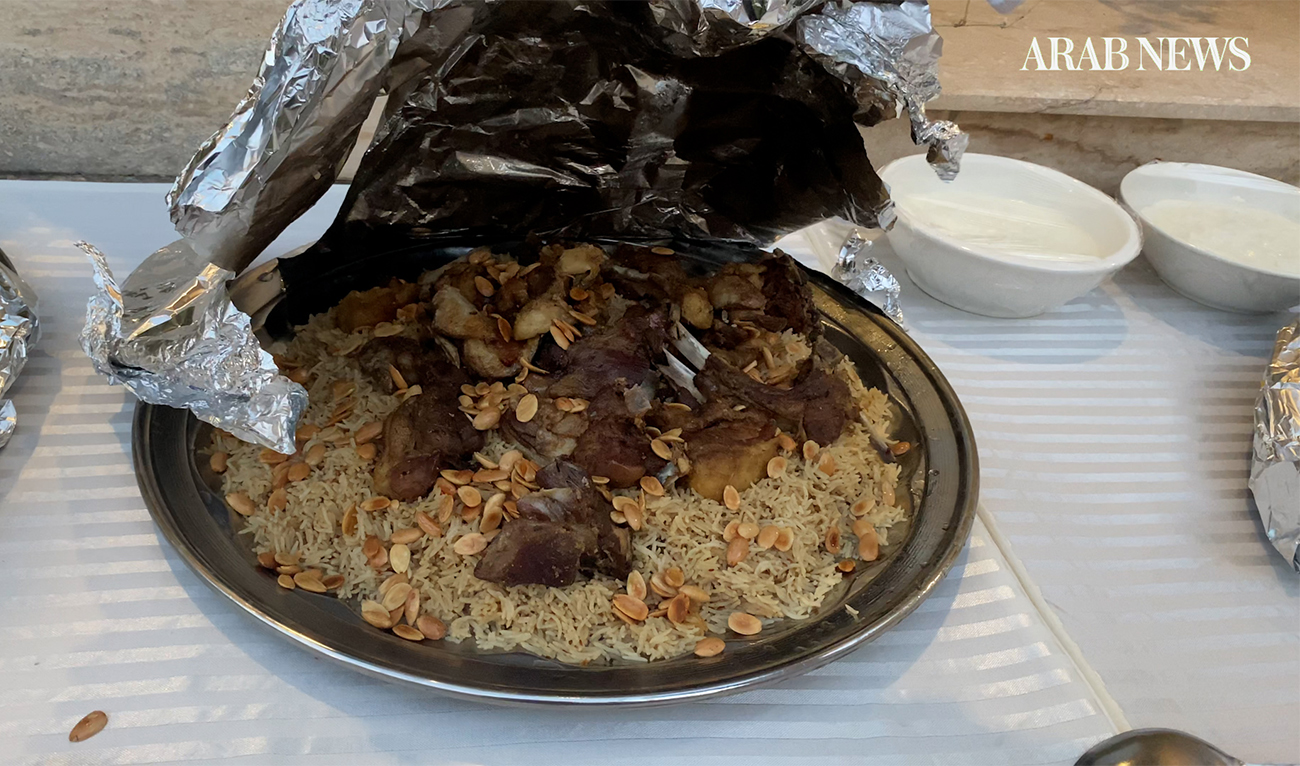ISLAMABAD: Palestine’s Ambassador to Pakistan Ahmed Jawad A.A. Rabei on Saturday hosted an iftar for the Palestinian community at his residence in Islamabad, where traditional Palestinian dishes such as ‘Maqluba,’ ‘Mansaf,’ ‘Qidreh,’ ‘Musakhan,’ ‘Warek Enab,’ ‘Qatayef’ and ‘Qizha’ were prepared for the guests to break their fast with.
Muslims around the world come together to celebrate the values of unity, solidarity and tolerance during the holy month of Ramadan. In Pakistan, the Palestinian community also observes the sacred month and celebrates an iftar at the ambassador’s residence every year, where they enjoy traditional Palestinian cuisine and feel a sense of connection to their cultural heritage while living far from their homeland.
“We invite our Palestinian people here, students and families living in our great country Pakistan to share iftar together,” Ambassador Rabei told Arab News.
“Till now we have about 300 Palestinian people in Pakistan, including students and families.”
Palestinian students traveled all the way from Karachi, Hyderabad, Lahore, Nawabshah and Peshawar to the Pakistani capital to participate and band together at the annual iftar event, the diplomat said.
“Although I miss my people and family living in Palestine and also praying in Al-Aqsa mosque, I feel Pakistan like a second home,” the ambassador said.

Palestine’s Ambassador to Pakistan Ahmed Jawad A.A. Rabei addresses guests during an iftar dinner at his residence in Islamabad, Pakistan, on April 8, 2023. (AN photo)
His wife, Amal Rabei, said they cooked traditional Palestinian dishes to give the community a “home-like feel.”
“We have cooked Maqluba and Qidreh, these are Palestinian dishes, and Mansaf, another Palestinian dish, Musakhan,” she told Arab News.

The picture taken on April 8, 2023, shows a traditional Palestinian dish called ‘Maqluba.’ (AN photo)
Eman Jihad, a Palestinian student, expressed her joy over the gathering and for seeing people who spoke the same language as she did.
“It feels really good to gather with friends and people who talk in the same language that you do as living in Pakistan is totally different than living in Palestine,” she told Arab News.

The picture taken on April 8, 2023, shows a traditional Palestinian dish comprised of rice and lamb. (AN photo)
Jihad said being able to converse in her native language, savor traditional food, and socialize with individuals from her country gave her a “sense of belonging” and made her feel at home.
“Talking the same language, eating traditional food, having some people from your nature, from your country from your surroundings, it feels so good, it feels so like home for us,” she added.
Yasmin Abuawad Shaheen, the ambassador’s daughter, said the purpose of the iftar was to demonstrate unity and enjoy the festivity of Ramadan.
“The purpose is that we want to gather each other because we are Muslims and we want to enjoy it with our brothers and sisters from Palestine and Pakistan,” she told Arab News.



















